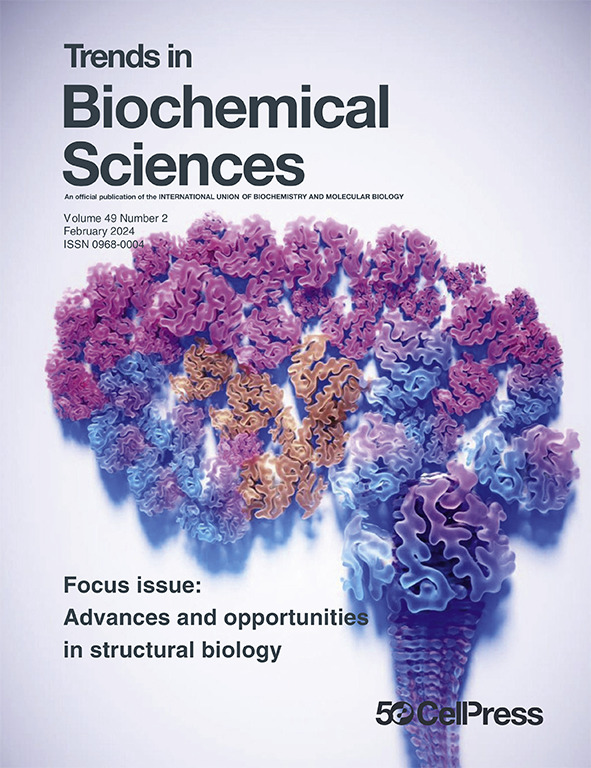Recent advances in enzymes active on lignin-derived aromatic compounds
IF 11
1区 生物学
Q1 BIOCHEMISTRY & MOLECULAR BIOLOGY
引用次数: 0
Abstract
Lignin is an attractive alternative to fossil fuels as a feedstock for the sustainable manufacture of chemicals. Emergent strategies for lignin valorization include tandem processes whereby thermochemical fractionation of the biomass yields a mixture of lignin-derived aromatic compounds (LDACs), which are then transformed into target compounds by a microbial cell factory. Identifying LDAC-degrading pathways is critical to optimize carbon yield from diverse depolymerization mixtures. Characterizing enzymes – especially those that catalyze the rate-limiting steps of O-demethylation, hydroxylation, and decarboxylation – informs and enables biocatalyst design. Rational, structure-based engineering of key enzymes, as well as untargeted, evolution-based approaches, further optimize biocatalysis. In this review we outline recent advances in these fields which are critical in developing biocatalysts to efficiently synthesize lignin-based bioproducts.
木质素衍生芳香族化合物活性酶研究进展。
木质素是一个有吸引力的替代化石燃料的原料,可持续生产的化学品。木质素增值的新兴策略包括串联过程,即生物质的热化学分馏产生木质素衍生芳香化合物(LDACs)的混合物,然后由微生物细胞工厂将其转化为目标化合物。确定ldac的降解途径对于优化不同解聚混合物的碳产量至关重要。表征酶,特别是那些催化o -去甲基化、羟基化和脱羧的限速步骤的酶,可以为生物催化剂的设计提供信息并使其成为可能。合理的、基于结构的关键酶工程,以及非靶向的、基于进化的方法,进一步优化了生物催化。本文综述了这些领域的最新进展,这些进展对开发生物催化剂以高效合成木质素基生物制品具有重要意义。
本文章由计算机程序翻译,如有差异,请以英文原文为准。
求助全文
约1分钟内获得全文
求助全文
来源期刊

Trends in Biochemical Sciences
生物-生化与分子生物学
CiteScore
22.90
自引率
0.70%
发文量
148
审稿时长
6-12 weeks
期刊介绍:
For over 40 years, Trends in Biochemical Sciences (TIBS) has been a leading publication keeping readers informed about recent advances in all areas of biochemistry and molecular biology. Through monthly, peer-reviewed issues, TIBS covers a wide range of topics, from traditional subjects like protein structure and function to emerging areas in signaling and metabolism. Articles are curated by the Editor and authored by top researchers in their fields, with a focus on moving beyond simple literature summaries to providing novel insights and perspectives. Each issue primarily features concise and timely Reviews and Opinions, supplemented by shorter articles including Spotlights, Forums, and Technology of the Month, as well as impactful pieces like Science & Society and Scientific Life articles.
 求助内容:
求助内容: 应助结果提醒方式:
应助结果提醒方式:


